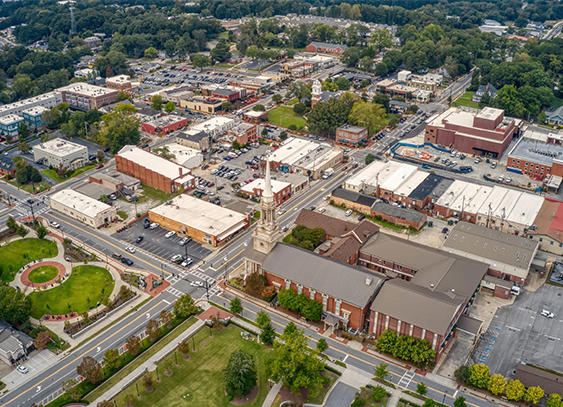Delayed Concussion Symptoms

Head injuries are among the most common types of injuries in personal injury cases. A concussion is a mild traumatic brain injury (mild TBI) that can result from a blow to the head or a strong jolt to the body. Even though the term “mild” implies that a concussion is not serious, concussions can cause long-term symptoms and complications.
In some cases, concussion symptoms may be immediate. However, delayed concussion symptoms are also common. Therefore, it is essential to know what symptoms could indicate a concussion and what to do if you experience a head injury after an accident or other incident.
Common Concussion Symptoms
A concussion may or may not result in loss of consciousness. Do not assume that you did not sustain brain damage if you were not knocked out after an accident or head injury. Symptoms that can indicate you may have sustained a TBI or concussion include:
- Headaches
- Blurry vision
- Dizziness and trouble balancing
- Slurred speech
- Vomiting and/or nausea
- Trouble concentrating
- Ringing in the ears
- Seizures and/or convulsions
- Increases sensitivity to sound and/or light
- Changes in sleep patterns
- Difficulty remembering new information
The severity of the injury generally increases the severity of the symptoms. However, you will not know the extent of your concussion injury until a physician examines you.
Timeline for Concussion Symptoms After an Accident
Concussion symptoms often appear immediately after a head injury. You may “see stars” or experience blurry vision. You may feel intense pain or nausea.
However, concussion symptoms can come and go for days or weeks after a head injury. In some cases, your concussion symptoms may worsen over time.
If you experience any adverse symptoms after a head injury, you should seek medical treatment. Signs that indicate you could require emergency medical services include, but are not limited to:
- Seizures, twitching, or convulsions
- Repeated bouts of vomiting
- Any loss of consciousness
- Extreme drowsiness and/or inability to wake up
- Numbness, weakness, or lack of coordination
- Unusual behavior
- Signs of cognitive impairment
- Inability to form words/sentences or slurred speech
- One pupil is larger than the other pupil
Concussion symptoms differ from person to person and from case to case. Also, children may exhibit other signs of a concussion, such as losing interest in favorite activities, regression of learned skills, excessive crying, and changes in sleep or eating patterns.
Initial symptoms of a mild TBI may intensify. New symptoms could appear days or weeks after the head injury. It is crucial to keep a log of your symptoms to provide your physician with.
What Is Post-Concussion Syndrome and Second Impact Syndrome?
Your delayed concussion symptoms could be an indication of post-concussion syndrome or second-impact syndrome. Typically, concussions heal within a few weeks or months without complications or long-term impairments. However, if concussion symptoms continue for a year or longer, the person may experience long-term symptoms that could cause impairment of one or more functions.
Additionally, delayed concussion symptoms could increase the risk of a second injury. Individuals who sustain a head injury have a higher-than-average risk of sustaining a second brain injury if they are in an accident. The risk increases when the brain has not entirely healed from the first concussion.
If you have delayed concussion symptoms, you might not realize you have second impact syndrome if you sustain another head injury. You may assume that the symptoms are from the first mild TBI. Repeated concussions can result in chronic traumatic encephalopathy (CTE), which can result in symptoms that mimic Alzheimer’s, dementia, and other similar brain disorders.
Can I Recover Compensation for Delayed Concussion Symptoms?
The party responsible for causing your concussion could be liable for damages. A personal injury claim for a concussion injury could result in compensation for your economic and non-economic damages. Damages for a concussion injury include:
- Medical bills, including future expenses for ongoing medical treatment
- Long-term nursing and/or personal care
- Physical pain and suffering
- Impairments and disabilities
- Lost wages, benefits, and earning capacity
- Mental anguish and emotional distress
- Scarring and disfigurement
- Out-of-pocket expenses
- Loss of enjoyment of life and quality of life
- Rehabilitative therapies
The amount you receive for a personal injury settlement depends on the facts of your case and the severity of your concussion. If you are suffering because of another party’s negligence or intentional acts, contact a personal injury lawyer for a free consultation.
Contact the Personal Injury Law Firm of Lawson Personal Injury Attorneys in Lawrenceville for Help Today
For more information, please contact our experienced personal injury lawyer at Lawson Personal Injury Attorneys to schedule a free initial consultation today. We have a convenient location in Lawrenceville, GA.
Lawson Personal Injury Attorneys
320 S Perry St, Lawrenceville, GA 30046
(678) 446-3655
